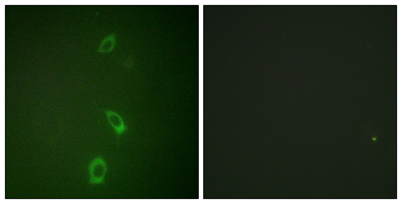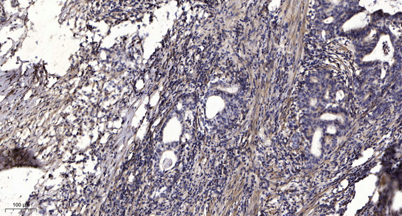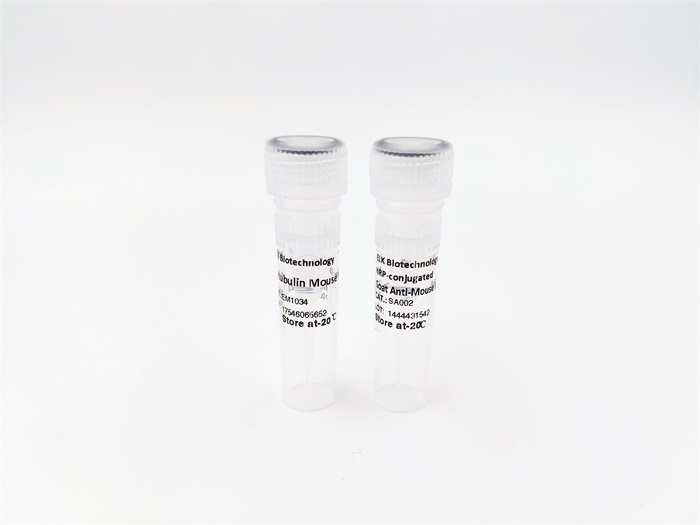







ROM-K rabbit pAb
 One-click to copy product information
One-click to copy product information$148.00/50µL $248.00/100µL
| 50 µL | $148.00 |
| 100 µL | $248.00 |
Overview
| Product name: | ROM-K rabbit pAb |
| Reactivity: | Human;Mouse;Rat |
| Alternative Names: | KCNJ1; ROMK1; ATP-sensitive inward rectifier potassium channel 1; ATP-regulated potassium channel ROM-K; Inward rectifier K(+) channel Kir1.1; Potassium channel; inwardly rectifying subfamily J member 1 |
| Source: | Rabbit |
| Dilutions: | WB 1:500-2000;IHC-p 1:50-300 |
| Immunogen: | The antiserum was produced against synthesized peptide derived from human ROMK/Kir1.1. AA range:11-60 |
| Storage: | -20°C/1 year |
| Clonality: | Polyclonal |
| Isotype: | IgG |
| Concentration: | 1 mg/ml |
| Molecular Weight: | 45kD |
| GeneID: | 3758 |
| Human Swiss-Prot No: | P48048 |
| Cellular localization: | Cell membrane ; Multi-pass membrane protein . Phosphorylation at Ser-44 by SGK1 is necessary for its expression at the cell membrane. . |
| Background: | Potassium channels are present in most mammalian cells, where they participate in a wide range of physiologic responses. The protein encoded by this gene is an integral membrane protein and inward-rectifier type potassium channel. It is activated by internal ATP and probably plays an important role in potassium homeostasis. The encoded protein has a greater tendency to allow potassium to flow into a cell rather than out of a cell. Mutations in this gene have been associated with antenatal Bartter syndrome, which is characterized by salt wasting, hypokalemic alkalosis, hypercalciuria, and low blood pressure. Multiple transcript variants encoding different isoforms have been found for this gene. [provided by RefSeq, Jul 2008], |
-
 Immunofluorescence analysis of A549 cells, using ROMK/Kir1.1 Antibody. The picture on the right is blocked with the synthesized peptide.
Immunofluorescence analysis of A549 cells, using ROMK/Kir1.1 Antibody. The picture on the right is blocked with the synthesized peptide. -
 Immunohistochemical analysis of paraffin-embedded human Gastric adenocarcinoma. 1, Antibody was diluted at 1:200(4° overnight). 2, Tris-EDTA,pH9.0 was used for antigen retrieval. 3,Secondary antibody was diluted at 1:200(room temperature, 45min).
Immunohistochemical analysis of paraffin-embedded human Gastric adenocarcinoma. 1, Antibody was diluted at 1:200(4° overnight). 2, Tris-EDTA,pH9.0 was used for antigen retrieval. 3,Secondary antibody was diluted at 1:200(room temperature, 45min).

 Manual
Manual